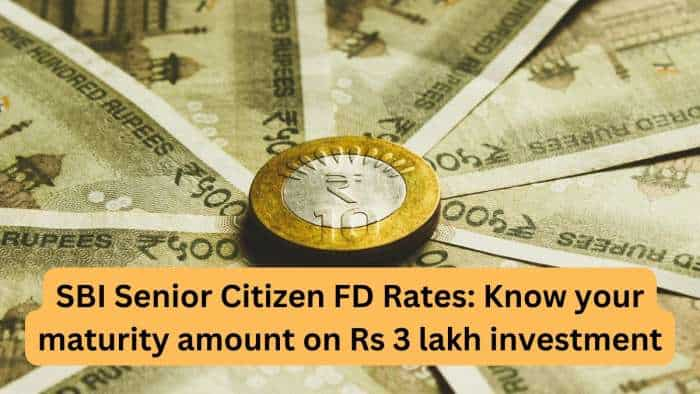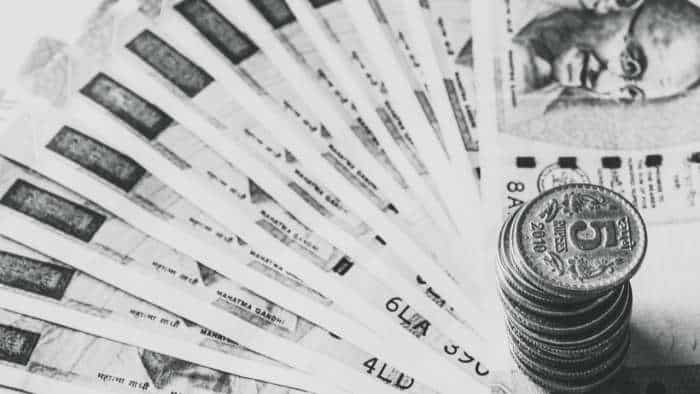Explained: What is share buyback and why do companies go for it?
Share buyback is a corporate action in which the company buys back the shares from its existing shareholders either via a tender offer route or through the open market offer under Section 68 of the Companies Act 1968. The buyback of shares is out of companies' free reserves or the securities premium account.
)
The earnings season is underway, and along with their financial results, many companies have announced plans to buyback or repurchase their shares. Piramal Enterprises, Larsen and Toubro (L&T), Amrutanjan Healthcare, Aarti Drugs, and IndiaMart Intermesh are some of the names that have announced share buybacks.
A share buyback is a corporate action in which the company buys back the shares from its existing shareholders either via a tender offer route or through the open market offer under Section 68 of the Companies Act 1968. The buyback of shares is out of companies' free reserves or the securities premium account.
But why do companies buy back shares, and how is it useful to investors? Let's understand them one by one. But first, a little more detail on share buybacks.
Share buyback, or share repurchase, is when a company purchases its share to reduce its outstanding share in the market. Often, in a buyback offer, the shares are bought by the company at a price higher than the prevailing market price.
So why do companies opt for buybacks of shares?
A company can repurchase its stock for numerous reasons, including:
-to boost the value of the stock;
-when they have cash on hand and the stock market is on an upswing;
-when there is excess cash but not enough projects to invest in;
-to consolidate its hold over the company.
-to signal that the stock is undervalued.
"There are several possible reasons for a company to repurchase its shares, including regaining ownership, returning excess cash, optimising its capital structure, and reducing the number of outstanding shares in the market, which results in reducing the cost of capital," said Palka Arora Chopra, Director, Master Capital Services Ltd.
How does a share buyback impact investors?
According to Ravi Singhal, CEO, GCL Broking, companies can increase shareholder value through share repurchases. The portion of income that a company spends to repurchase shares has a favourable impact on the share price in normal market circumstances.
For instance, a shareholder holds 100 (or 10 per cent) of the 1,000 shares in a listed corporation. Through a share buyback scheme, the corporation buys back 100 shares, bringing the total number of shares down to 900. The stake of that shareholder will increase by 1.11 per cent to 11.11 per cent, entitling them to a larger portion of the earnings.
According to Amar Ranu, Head, Investment Products & Insights, Anand Rathi Shares, and Stock Brokers, share buyback is also an alternative way to reward shareholders relative to dividends. Unlike dividends, where the taxation is at the shareholder level (at higher levels of income, the tax is higher), in share buybacks, the company pays the applicable tax, which is 20 per cent.
What are the share buyback methods?
Open market offer
Through this method, the company repurchases the shares from sellers directly via the stock exchange. This is usually done through brokers. The shares purchased via this method are usually bought at the current market price.
Tender route
A tender offer buyback occurs when a firm announces a defined price at which it will purchase shares from existing shareholders.
Catch latest stock market updates here. For all other news related to business, politics, tech, sports and auto, visit Zeebiz.com.
Get Latest Business News, Stock Market Updates and Videos; Check your tax outgo through Income Tax Calculator and save money through our Personal Finance coverage. Check Business Breaking News Live on Zee Business Twitter and Facebook. Subscribe on YouTube.
RECOMMENDED STORIES

SBI Senior Citizen FD Rates: Want to invest Rs 3,00,000 in SBI FD? You can get this much maturity amount in 1 year, 3 years, and 5 years

5 Stocks to Buy: Varun Beverages, ICICI Bank, Godrej Consumer, and 2 others for up 67% upside; check out long-term targets

SBI 5-Year FD vs SCSS: Which investment option can offer better returns with quarterly payments on Rs 6,00,000?

EPS Pension Calculation: Rs 40,000 basic salary, 30 years of service, what will be your monthly EPS pension amount?

Retirement Planning: How one-time investment of Rs 11,00,000 can create a Rs 3,30,00,000 retirement corpus

UPS vs NPS vs OPS: Last-drawn basic salary Rs 80,000; pensionable service 25 years; what can be your monthly pension in each scheme

9 Stocks to Buy for Short Term: Analysts recommend largecap stocks for 2 weeks; Tata Steel, SBI Life Insurance on the list

Monthly Pension Calculations: Is your basic pension Rs 25,000, Rs 45,000, or Rs 55,000? Know what can be your total pension as per latest DR rates
03:53 PM IST








 Share Market News: Infosys, Indigo Paints, GIC, Infibeam, other stocks to track today
Share Market News: Infosys, Indigo Paints, GIC, Infibeam, other stocks to track today  Jai Corp stock set to trade ex-buyback on Tuesday
Jai Corp stock set to trade ex-buyback on Tuesday Share Market News: RailTel, Samvardhana Motherson, MGL, 14 other stocks due to trade ex-dividend on Wednesday; see list
Share Market News: RailTel, Samvardhana Motherson, MGL, 14 other stocks due to trade ex-dividend on Wednesday; see list  Bonus, Share Split, Dividend Stocks: 50+ scrips to trade ex-date on Friday; BHEL, Equitas SFB, Kalyan Jewellers, BPCL, CEAT on the list
Bonus, Share Split, Dividend Stocks: 50+ scrips to trade ex-date on Friday; BHEL, Equitas SFB, Kalyan Jewellers, BPCL, CEAT on the list  Share buybacks no longer to woo investors: here’s why
Share buybacks no longer to woo investors: here’s why